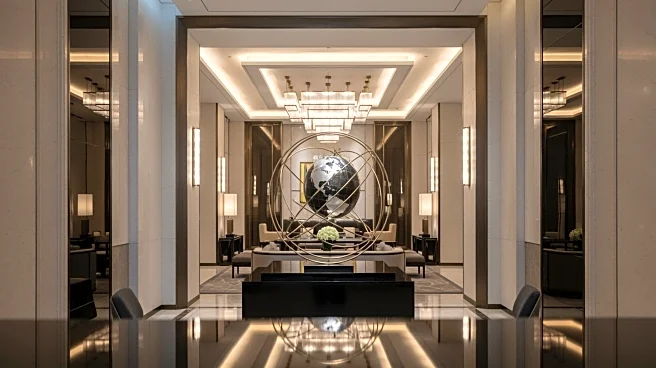What's Happening?
The hospitality industry is undergoing a significant shift towards experience-led travel, where emotional engagement is becoming a core business strategy. Experience curators, who focus on designing emotions
rather than managing processes, are emerging as key players in this transformation. They use emotional touchpoints like soundscapes, scents, and service points to create memorable guest experiences. Lukas Cabalka, Co-Founder and Chief Creative Director of Something New Creative, emphasizes the importance of emotional architecture in hospitality, treating feelings as the foundation of design. This approach moves away from traditional luxury markers like amenities and visual uniformity, focusing instead on emotional engagement and storytelling.
Why It's Important?
The rise of experience curators represents a profound shift in the hospitality industry, where emotional engagement is becoming a strategic driver of loyalty and brand differentiation. As guests seek more meaningful and memorable experiences, hotels and resorts must adapt by integrating emotional design into their offerings. This shift challenges traditional metrics of success, such as operational excellence, and places greater emphasis on emotional connection and storytelling. By prioritizing emotions, hospitality brands can enhance guest satisfaction, increase dwell times, and foster stronger brand loyalty.
What's Next?
As the role of experience curators becomes more prominent, hospitality brands may invest in training and hiring professionals skilled in emotional design and storytelling. This could lead to a reimagining of hotel spaces and services, where every aspect of the guest experience is carefully choreographed to evoke specific emotions. The industry may also see increased collaboration with creative studios and innovators to develop new strategies for emotional engagement. As emotional design becomes a competitive advantage, brands that fail to adapt may risk losing relevance in the evolving market.
Beyond the Headlines
The focus on emotional engagement in hospitality reflects broader societal trends where consumers increasingly value experiences over material goods. This shift has implications beyond the hospitality industry, influencing sectors like retail, entertainment, and travel. As brands across industries seek to create emotional connections with consumers, the principles of emotional design and storytelling may become integral to business strategies. This evolution highlights the growing importance of intangible elements in shaping consumer behavior and brand loyalty.









